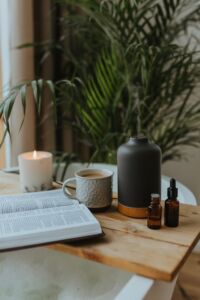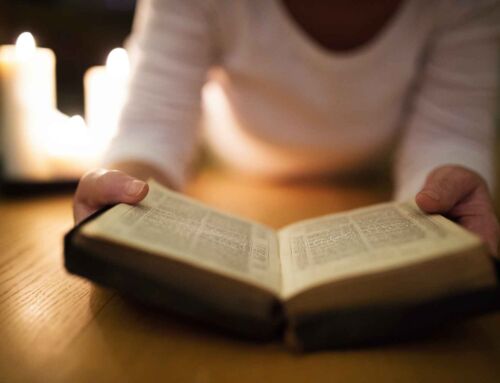 Anxiety – the body’s natural reaction to a threatening situation – affects us all in one way or another. For some, it might be the thought of an upcoming speech one has to deliver, for others, the prospect of hosting a large group of people.
Anxiety – the body’s natural reaction to a threatening situation – affects us all in one way or another. For some, it might be the thought of an upcoming speech one has to deliver, for others, the prospect of hosting a large group of people.
Symptoms differ between individuals, but generally, anxiety causes an increased heart rate and a feeling of tension and stress. It may not be problematic as a once-off occurrence now and then, but anxiety that starts to impact a person’s life can be debilitating and needs to be brought under control. Redlands Christian Counseling can provide support and guidance to help individuals manage and overcome anxiety.
The Bible acknowledges that worry and anxiety will be a part of life this side of heaven. It also commands us in Philippians 4:6 NIV, to “not be anxious about anything, but in everything, by prayer and petition, with thanksgiving, present your requests to God.”
5 Relaxation Techniques for Anxiety
Here are five proven relaxation techniques for anxiety that will help this verse be true in your life.
1. Spend time in prayer.
This is the first instruction God gives us when we are feeling anxious, and we would do well to do this as a first type of relaxation technique, rather than a last resort. Bringing our worries to God is a way of sharing them with our Father who made us, and who already knows exactly what we are going through. He wants us to tell Him all about it, not as a relaxation technique for anxiety, but out of obedience. Through doing this, we will likely feel our anxiety fade.
2. Practice gratitude as one of your relaxation techniques.

Gratitude is said to be an antidote for worry. It makes sense that if we are looking for a relaxation technique for anxiety, we make gratitude a regular habit. It is easy to miss the “with thanksgiving” part of the Philippians verse, but once again, it is a command that is there, for our good and God’s glory. If you want to start enjoying a more relaxed approach to life, find five things to be grateful for every morning. Soon you will not be able to limit yourself!
3. Get the body basics right.
Every book or article on the subject mentions self-care as one of the more important relaxation techniques for anxiety. This means that focusing on getting enough sleep, eating healthy, nutritious food, and exercising regularly all go a long way toward easing the burden of feeling debilitated by worry.
4. Practice breathing exercises as relaxation techniques.
Learning to breathe properly is one of the renowned relaxation techniques for anxiety. There are many different types of breathing exercises to learn and master. The basic premise is that breathing in slowly through your nose, and breathing out through your mouth, will slow your heart rate and help you to distract you from anxious thoughts.
5. Take every thought captive.
God knows that our thoughts are powerful and determine our attitudes and actions. In 2 Corinthians 10:5 NIV, we are told to “take every thought captive to make it obedient to Christ.” This is once again more about obedience rather than a relaxation technique for anxiety. It has the effect of helping us focus on what is good and true, which serves to relieve anxiety.
These ways to ease anxiety are not easy on the outset. But, if we take small steps toward incorporating them into our daily lives, we will find that we are living with more joy, and less worry and concern. If you need additional help with your anxiety, don’t wait to contact a Christian counselor at Redlands Christian Counseling for specialized care.
Photos:
“Coffee and Bible”, Courtesy of Daiga Ellaby, Unsplash.com, Unsplash+ License; “Relaxing”, Courtesy of Dinuka Lankaloka, Unsplash.com, CC0 License
-
Kate Motaung: Curator
Kate Motaung is the Senior Writer, Editor, and Content Manager for a multi-state company. She is the author of several books including Letters to Grief, 101 Prayers for Comfort in Difficult Times, and A Place to Land: A Story of Longing and Belonging...
DISCLAIMER: THIS ARTICLE DOES NOT PROVIDE MEDICAL ADVICE
Articles are intended for informational purposes only and do not constitute medical advice; the content is not intended to be a substitute for professional medical advice, diagnosis, or treatment. All opinions expressed by authors and quoted sources are their own and do not necessarily reflect the opinions of the editors, publishers or editorial boards of Stone Oak Christian Counseling. This website does not recommend or endorse any specific tests, physicians, products, procedures, opinions, or other information that may be mentioned on the Site. Reliance on any information provided by this website is solely at your own risk.




